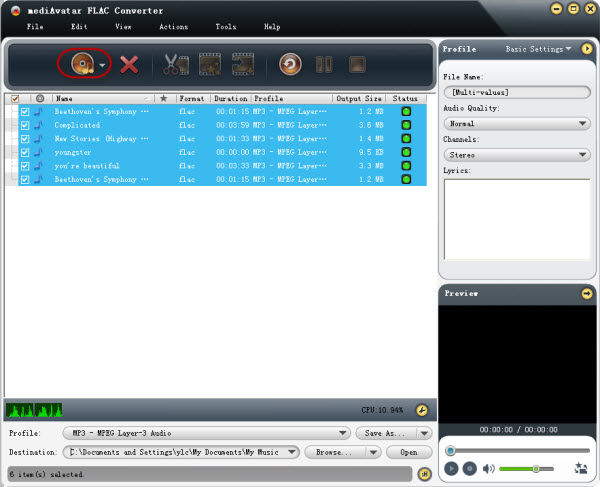

Released back in 2001, FLAC or Free Lossless Audio Codec is a popular lossless audio format. It helps in reducing the file size, making it easier to store and share. So for a 10-minute song, the AIFF file will occupy 100MB or even more.Įven though AIFF is a lossless audio format, it has no compression of audio data whatsoever.Īs an alternative, Apple came up with another format called the AIFF-C that is similar to an original AIFF file but with an added feature of audio compression. As compared to an MP3 file, it occupies 5 times space.Įach audio minute of an AIFF file takes up approximately 10MB.

Since AIFF files have the same sampling rate and sample size as WAV files, the disk space is fairly identical between these two audio formats. One can also call it Apple’s version of WAV files (Waveform Audio Format).Īn AIFF file contains the original audio data, two uncompressed channel information (stereo and mono) that can be recorded with a sample size of 16 bits and a sampling rate of 44.1 kHz.Īn AIFF audio file has similar audio configurations as a CD, and thus it is also known a s CD-quality audio.

FeaturesįLAC vs AIFF: Which one is the best? What is AIFF?ĭeveloped by Apple, AIFF, short for Audio Interchange File Format, is one of the most-used audio file formats in the Apple Macintosh Operating System. So let’s get on with it as we closely look into both these lossless audio formats. Keeping your listening experience at the best of our interests, we will carry out a comprehensive comparison between FLAC and AIFF.īy the end of this article, you will gain enough information about both these audio formats, thus helping you decide which one of them would suit your needs. Lossless audio formats have tickled the intriguing minds of audio professionals and today we take it upon our hands to sort a debate – which is better – FLAC and AIFF? You needn’t worry anymore as we are here to make it simple for you and clear out the fog. Are you an audiophile? Are you interested in studying AIFF vs FLAC audio formats closely? Or are you confused about making an informed decision for which audio would best serve your purpose?


 0 kommentar(er)
0 kommentar(er)
